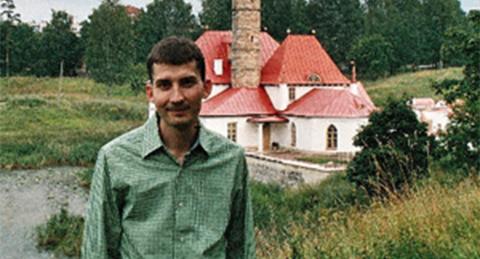
Earlier this year I realized, with some amazement, that it has been ten years since I graduated from the University of New Hampshire in May 1996. It is one of those milestones of life at which one arrives unexpectedly—and contemplating, which makes one reflect on the path traveled. Thinking back 11 years, trying to recall what it was like for me to be in Durham in November 1995, what I remembered was, in part, a sense of listless and expectant anxiety that most seniors probably experience. There I was, preparing to get my dual major in political science and international affairs in a short while, and having very little sense of what was likely to happen next.
A decade has passed since my graduation, and although I still might not know what happens next, it is clear that productive anxiety is healthy. It is equally clear—and this should help to alleviate some worries—that there are plenty of excellent opportunities for people with training similar to that I received at UNH.
In the past, when asked what one could do with a degree in political science and international affairs, I usually would rattle off a number of possible fields: government, development, academia, business, journalism, think-tanks... Trying all of them is probably difficult in a span of one lifetime, but so far I have been fortunate to work in a number of these fields. As interplay between my intellectual interests and professional experience becomes more complex, it is ever more apparent how rich the world of international affairs, and practical applications of political knowledge, can and should be.
Right after graduating from UNH, I spent a year in Washington, DC, working as a Junior Fellow at the Carnegie Endowment for International Peace, one of this country’s oldest and most prominent foreign-policy think-tanks. Think-tanks do wonders to demystify policy and politics. As one sits next to ambassadors and edits work of policy luminaries, the workings of the vast world of politics become comprehensible and approachable. After Carnegie, I moved to New York and enrolled in a graduate course—in political science, with international relations as my primary field—at Columbia University. If research and teaching is your calling, a Ph.D. program would be one of the highlights of your life. Regardless of your subsequent path, the knowledge you acquire and people you meet will be valuable assets.
My next step after passing my comprehensive exams was a position at a not-for-profit development organization focusing on issues of banking and financial sector reform in transition economies. Financial Services Volunteer Corps (FSVC) works all over the world, and in my time there, while focusing mostly on Russia, I also had opportunities to work on China, Indonesia and Afghanistan. FSVC enabled me to acquire practical and comparative grounding in issues facing the world’s banking sectors, a subject that was as fascinating to me as it was new and continuously challenging.
Since early 2006, I made a shift to the private sector, and have been working as a Europe/Eurasia analyst at Eurasia Group, a global political risk consultancy. It is a dynamic and rapidly growing consulting firm. My job is to help investors understand Russia’s political and regulatory environment, an exhilarating task. Russia presents a broad range of events and subjects to analyze daily, and my previous training as a policy and academic specialist and as a project manager in a development organization all come into play constantly.
So there are many interesting positions out there for political science majors and international affairs geeks. UNH gave me a solid base of knowledge for my professional and intellectual development over the past decade; and this knowledge, and my memories of those semesters in Durham, will be helping me for many years to come.